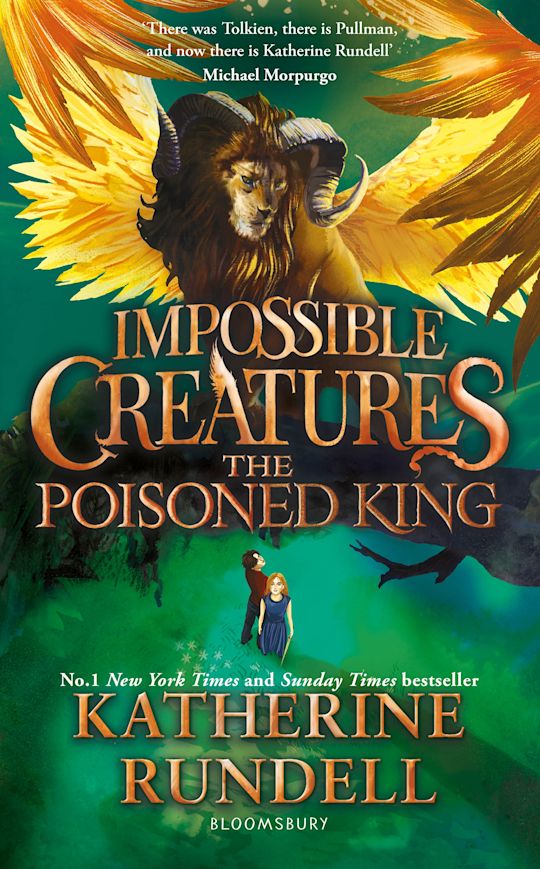Katherine Rundell
The Poisoned King (Impossible Creatures Book 2)
The Poisoned King (Impossible Creatures Book 2)
Couldn't load pickup availability
I came to The Poisoned King, the second in Katharine Rundell's Impossible Creatures series, with very high expectations. Its predecessor concluded with one of the best denouements I've ever read and proved, if proof was needed, that children's books can rival adult titles in the quality of their writing.
The Poisoned King begins with Christopher back in London; but with Jacques, the brilliantly haughty if tiny dragon, chewing on his face, we know a return to the Archipelago is imminent. (The Archipelago is a land hidden on earth, where the great creatures of myth live alongside humans.) Jacques has come to summon Christopher because “the great dragons are dying, in their dozens. Nobody knows why.” The only person the dragons trust to find the cause is Christopher, because he is from the Outerlands, or Earth as we know it.
Christopher accepts the request and returns only to immediately be confronted by Naravirala, the sphinx, who has her own plans for him. She sends him off to help Anya, a reluctant princess whose grandfather is about to become the titular poisoned King, and whose father will be named the murderer.
From here, Rundell whisks us back into the magical world she built so successfully in the first book. Familiar characters — Ratatowski, Irian and Nighthand — return, and a new cast is introduced. I didn't know how Rundell could possibly replace Mal, the hero of Impossible Creatures, but she did. Anya is “furious and generous and loving. She was like an arrow in flight”: the perfect foil to Christopher's thoughtful, selfless and more measured personality. As the two of them help each other fulfil their separate quests — to save the dragons and save Anya’s father — their friendship shows us “how we edge forwards, humanity: each with the other.”
Amongst all the magic and myth, the adventure and friendship, the greatest gift on the page is Rundell’s willingness to grant young readers the intelligence to fill in the gaps and interpret unfamiliar words. Big ideas about guardianship, democracy, equality and wealth sit alongside encounters with Manticores and Chimeras. As Anya takes on the might of a kingdom being wielded against her, she worries:"What do you do, in the face of evil men? In the face of evil men, protected by strong men and served by weak men?” Christopher, asked to believe he can face a power capable of killing dragons, recalls his grandfather telling him that “[f]aith is paradoxical, in that it consists of the belief in the possibility of the impossible.” Few writers of any genre, for any age, can tell stories that convincingly address such themes. Even fewer can do it with such lightness of touch and such unalloyed fun.
Although The Poisoned King in my view falls short of the high bar set by Impossible Creatures, it’s still one of the best children's books, indeed one of the best books for any age, that you could read this year.
Sam
Share


